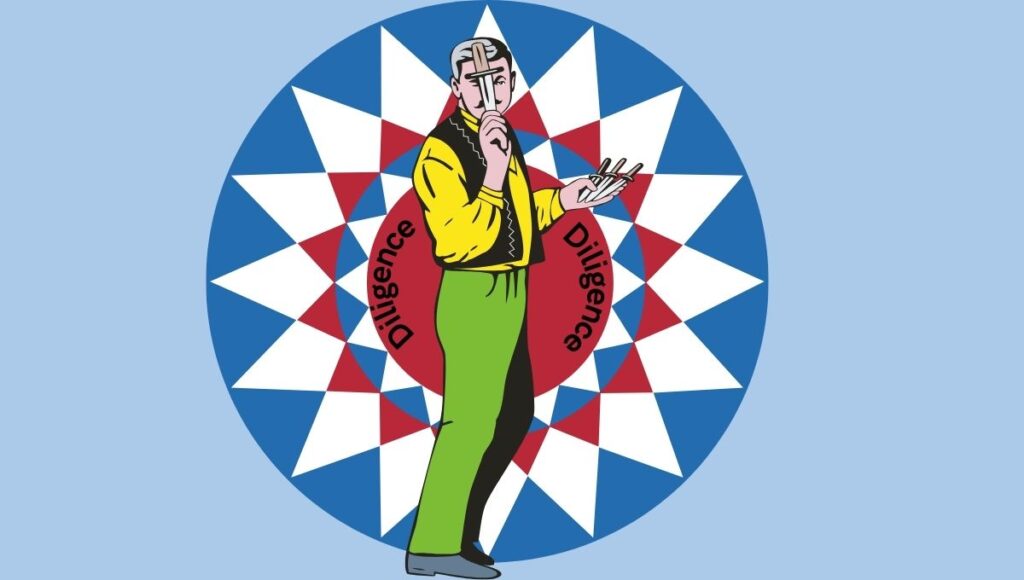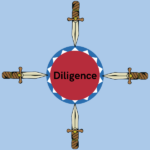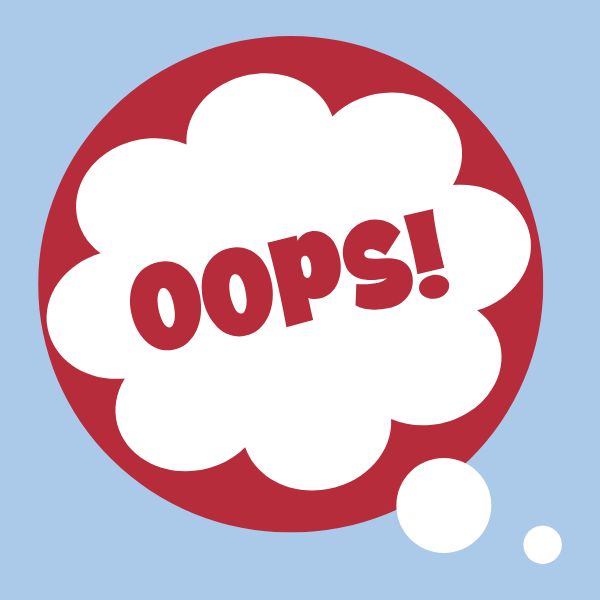Mar 15, 2025
If You Want Great Diligence Don’t Do This…
Diligence

For successful diligence outcomes don’t let these 4 diligence killers attack your organization. Stop them before they slice your diligence apart.
Diligence Killers

Why is your organizations failing to perform effective diligence? Are your teams having trouble with their diligence tasks? Why are your employees, contractors or vendors not engaging in diligence? Good questions and the answers are vital if you want to have a diligent organization. Because if you don’t know what is derailing diligence efforts you are leaving the organization vulnerable to:
To avoid these outcomes examine your organization to make sure that it is not engaging in one or more of these 4 behaviors that will kill diligence.
Four Diligence Killers
No Intent – If an organization says the “right things” about diligence but through action and culture signal the opposite – there is no intent to perform diligence.

Remember when you were a kid and you crossed your fingers behind your back. It meant that while you were saying one thing you knew you would do something different. Saying the right things but allowing and rewarding behavior that does not align with diligence principles is the same as crossing your fingers behind your back. It is nothing more than lip service. Here are examples of what I call lip service diligence:
- Checklist Diligence – Take the checklist and check the boxes. Don’t think about it, don’t go deeper, no questions, no analysis, ignore red flags. Do the minimum necessary to check the box and move on.
- Willful Blindness – Don’t see or hear anything that even hints at an issue or problem that would interfere with going forward with your transaction, product, financial analysis or legal compliance. In other words, “don’t go there” or “look the other way” and just ignore the elephant in the room.
Lack of Support – Leaders want diligence but don’t want to get involved – “just get it done” and don’t bother me behavior.
Maybe it isn’t a priority, or maybe there is just too much to do, but for whatever the reason there are circumstances in which diligence gets minimal consideration from management. Lack of support means that your diligence suffers because there is no:
- Guidance – People performing diligence need guidance. The person assigned the diligence work needs to understand context, parameters, resources and plans. They may need to obtain specialized knowledge from a leader or expert such as the legal or compliance department.
- Ongoing Access – As the project progresses the information may present issues and the need to make decisions. People need to have an open door to discuss, debate and obtain decisions from leaders.
- Advocacy – Guidance and access are key elements of support and so is advocacy. Successful diligence programs are ones that have strong champions. People with influence and networks who are willing to back, defend and even protect people as they pursue great diligence.


Insufficient Resources – Diligence requires resources. There needs to be a budget that aligns to the type and scope of the diligence as well as to legal, compliance or industry requirements.
Even with the best of intentions a diligence program or project will suffer if there aren’t enough resources to properly support the diligence work. Common areas where diligence is underfunded include:
- Technology – Technological support is integral to all diligence. The level varies based on many factors but at the simplest level technology allows access to content. Then as needed technology provides support by allowing diligence content to be gathered, manipulated, processed, analyzed, applied, stored and monitored. In some instances or industries proper technological support is required for compliance.
- Information – Information is not always free and often the more sophisticated the industry or subject matter the more expensive the information. People performing diligence may need to to subscribe to materials such as databases, journals and specialized periodicals.
- Staffing – If there are not enough people to handle the diligence work, it us can’t be done or it will be done ineffectively and there will be errors and gaps.
- Expertise – Sometimes an expert is needed for guidance, to assist with analysis to provide direction, to find information. Examples of experts used for diligence include, subject matter experts, consultants, outside lawyers, forensic accountants and investigators. Expertise is also gained from participation in conferences, associations and educational opportunities.
Lack of Care – Diligence requires that people work diligently. If work is not performed diligently there will be errors and gaps and the diligence will be unreliable.
Are employees, contractors and vendors making errors? Are they skipping steps, forgetting to perform follow up tasks or careless with their work? Working diligently means working carefully and conscientiously. The reasons people may not be performing their work diligently include:
- Principles have not been communicated or supported – People need to understand what is expected and those expectations must be reflected in the feedback and reward system.
- No Education – Diligence tasks are not intuitive. It is unrealistic to rely on the idea that people will know how to perform their diligence tasks such as research, evaluation, analysis, monitoring and recording without education and training.
- Understaffing – What appears to be a lack of care can be the result of a lack of resources. If a team is understaffed or doesn’t have the proper resources they may take shortcuts, skip tasks and ignore issues because they just can’t keep up with the workload.

Conclusion
There are long lists of reasons why organizations fail at diligence, even when the outcome of the diligence is high and the consequences of the diligence even higher. But if you suspect or are seeing diligence problems take a look at the 4 behaviors discussed in this post:
- No Intent
- Lack of Support
- Insufficent Resource
- Lack of Care
One or more of these diligence killers may be impacting your organization, teams and people. If you find an issue, it is time for change, because it is impossible to have an organization that makes sound business, financial and legal decisions and avoids criminality unless it practices great diligence.
Here are additional posts that you may find helpful to learn more about and address issues raised in this post.
Can You Envision A Diligent Organization-Do You Want To?
How to Have a Diligent Organization – The Diligence File Framework
For Great Diligence Throw Out these 5 Excuses
Who Are The Best People for Great Diligence ?
Sign Up to Receive the Diligence File Emails – More Ideas & Resources to Advance Your Diligence
Thank you


Subscribe for Diligence Updates
Get the latest updates, resources, offers, and more.
"*" indicates required fields
The Diligence File respects your privacy. Privacy Policy